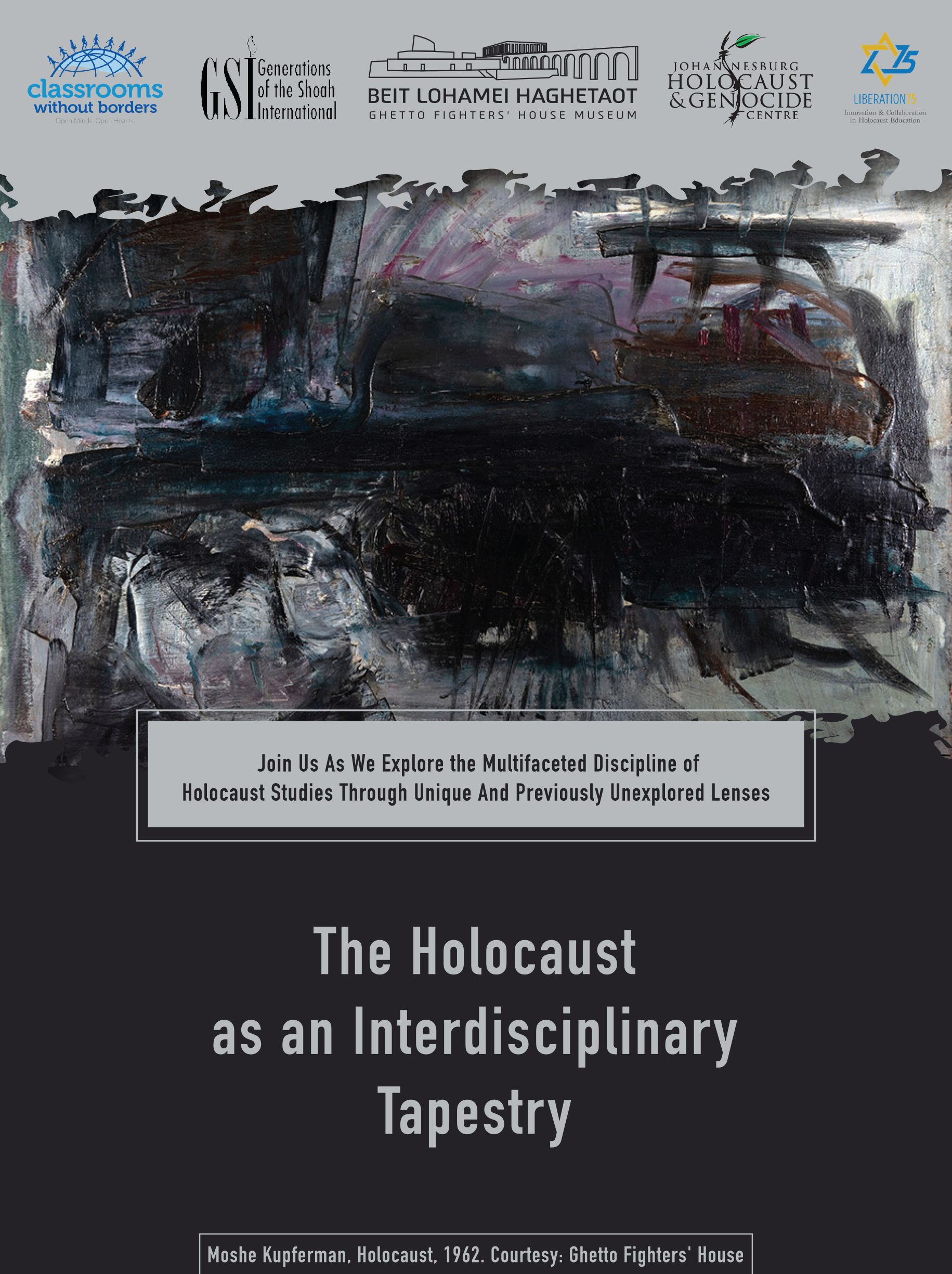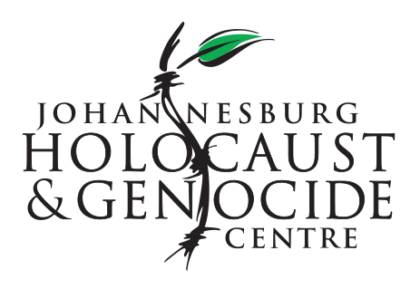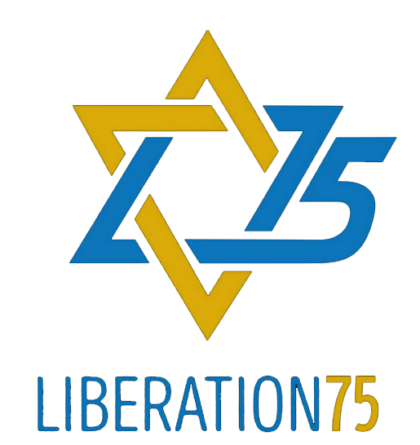
- This event has passed.
The Holocaust as an Interdisciplinary Tapestry
Thursday, October 26, 2023 @ 2:00 pm - 3:30 pm EDT

An 8 Part Series exploring the multifaceted discipline of Holocaust Studies through unique and previously unexplored lenses
Classrooms Without Borders, in coordination with Tali Nates, Founder and Director of the Johannesburg Holocaust & Genocide Centre, Madene Shachar, Director, “Talking Memory” online lecture series & International Educational Programs the Ghetto Fighters’ House, Esther Toporek Finder, member of the GSI Coordinating Council, Generations of the Shoah and in partnership with Liberation75 is pleased to embark on this new innovative series “The Holocaust as an Interdisciplinary Tapestry”.
This 8 part series will engage with scholars and experts who grapple with themes related to Holocaust studies. The series will explore the multifaceted discipline of Holocaust Studies through different lenses. The series will include scholars whose research and publications shed new light in this field of study that continues to grow and develop. Our experts will challenge us to understand the causes, impacts, and legacies of the Holocaust.
October’s Event will feature:
Gendering the Holocaust with Andrea Pető
An introduction to the rich history of researching the Holocaust. Research on women and the Holocaust developed driven by the political strategy formulated by Joan Ringelheim in 1983 that in failing to recognize that men and women suffer differently we “lose the lives of women for a second time”. A strong professional alliance was built between the second wave of the women’s movement and those who wanted to rewrite or revise women’s history. I analyze the consequences that the scholarship on women and the Holocaust followed the same epistemological route as women’s history writing in general. It started to collect the facts – making women visible and collecting evidence – and establish the history of women’s participation in, for example, the ghetto and among the Jewish resistance movements building up a considerable scholarship by now. The talk closes by analyzing the causes and actors of the recent illiberal challenge on Holocaust Studies and its consequences on gendering the Holocaust.
Andrea Pető

Andrea Pető is Professor in the Department of Gender Studies at Central European University, Vienna, Austria, and a Doctor of Science of the Hungarian Academy of Sciences. Her works on gender, politics, Holocaust and war have been translated into 23 languages. She edited three pioneering books in the field of Jewish Studies with Louise Hecht, Karoline Krasuska Women and Holocaust: New Perspectives and Challenges. IBL, Warsawa, 2015., and with Szapor, Judith, Hametz, Maura, Calloni, Marina, Jewish Intellectual Women in Central Europe 1860-2000. The Edwin Mellen Press, 2012., with Helga Thorson The Future of Holocaust Memorialisation. Confronting Racism, Anti-Semitism, and Homophobia Through Memory Work. Tom Lantos Institute, Budapest, 2015. Her recent monographs are: Women in the Arrow Cross Party (Palgrave, 2020), Forgotten Massacre, Budapest in 1944 (DeGruyter 2021). She the editor-in-chief of East European Holocaust Studies (DeGruyter). In 2018 she was awarded the 2018 All European Academies (ALLEA) Madame de Staël Prize for Cultural Values and 2022 University of Oslo Human Rights Award. She is Doctor Honoris Causa of Södertörn University, Stockholm, Sweden.

Tali Nates is the founder and director of the Johannesburg Holocaust & Genocide Centre (JHGC) and Chair of the South African Holocaust & Genocide Foundation (SAHGF). She is a historian who lectures internationally on Holocaust and genocide education, memory, reconciliation, and human rights. Born to a family of Holocaust survivors, her father and uncle were saved by Oskar Schindler. Tali has been involved in the creation and production of dozens of documentary films, published many articles and contributed chapters to different books among them God, Faith & Identity from the Ashes: Reflections of Children and Grandchildren of Holocaust Survivors (2015), Remembering The Holocaust in Educational Settings (2018), Conceptualizing Mass Violence, Representations, Recollections, and Reinterpretations (2021) and The Routledge Handbook of Memory Activism (2023).
In 2021 she was part of the 12-member Expert Group of the Malmö Forum, serving in an advisory capacity to the Secretariat of the Malmö Forum on their programme on Holocaust remembrance, education and actions to combat antisemitism. Tali serves on many Advisory and Academic Boards including that of the Contested Histories Initiative, the Interdisciplinary Academic Journal of Babyn Yar Holocaust Memorial Center and the Academic Advisory Group of the School of Social and Health Sciences, Monash University (IIEMSA), South Africa.
In 2010, Tali was chosen as one of the top 100 newsworthy and noteworthy women in
South Africa by the Mail & Guardian newspaper and won many awards including the Kia Community Service Award (South Africa, 2015), the Gratias Agit Award (2020, Czech Republic), the Austrian Holocaust Memorial Award (2021) and the Goethe Medal (2022, Germany).
Thank you to our Partners:





Final Events in this Series:
- November 16 2023 Memory Studies: Museums and Memorials
Past Events in this Series:
- February 23 2023 Psychiatry and the Holocaust
- March 23 2023 Ethics and Law
- April 27 2023 Education
- May 18 2023 Film
- June 15 2023 German Professionals and the Holocaust
- Sept 21 Jewish studies
